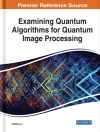“Only a small community has concentrated on general intelligence. No one has tried to make a thinking machine … The bottom line is that we really haven’t progressed too far toward a truly intelligent machine. We have collections of dumb specialists in small domains; the true majesty of general intelligence still awaits our attack. … We have got to get back to the deepest questions of AI and general intelligence …” (Marvin Minsky as interviewed in Hal’s Legacy, edited by David Stork, 2000).
The editors’ goal in creating this volume was to fill a gap in the scientific literature, providing a coherent presentation of a body of contemporary research that, in spite of its integral importance, has had a low profile. This body of work has not been given a name before, in this book they christen it “Artificial General Intelligence” (AGI). What distinguishes AGI work from run-of-the-mill “artificial intelligence” research is that it is explicitly focused on engineering general intelligence in the short term. We have been active researchers in the AGI field for many years, and it has been a pleasure to gather together papers from our colleagues working on related ideas from their own perspectives. In the Introduction we give a conceptual overview of the AGI field, and also summarize and interrelate the key ideas in the subsequent chapters.
表中的内容
Contemporary Approaches to Artificial General Intelligence.- The Logic of Intelligence.- The Novamente Artificial Intelligence Engine.- Essentials of General Intelligence: The Direct Path to Artificial General Intelligence.- Artificial Brains.- The New AI: General & Sound & Relevant for Physics.- Gödel Machines: Fully Self-referential Optimal Universal Self-improvers.- Universal Algorithmic Intelligence: A Mathematical Top?Down Approach.- Program Search as a Path to Artificial General Intelligence.- The Natural Way to Artificial Intelligence.- 3D Simulation: the Key to A.I..- Levels of Organization in General Intelligence.
关于作者
The first editor, Benjamin Goertzel, has been involved in AI research and application development since the late 1980s. He holds a Ph D in mathematics from Temple University, and over the period 1989-1997 he held several university faculty positions in mathematics, computer science, and psychology, in the US, New Zealand, and Australia. Dr. Goertzel is the author of numerous research papers and journalistic articles, a biography of Linus Pauling, and scholarly books dealing with topics in the cognitive sciences, including Chaotic Logic (Plenum Press, 1994), and Creating Internet Intelligence (Plenum Press, 2001).
Currently, as CEO of the software firms Biomind LLC and Novamente LLC, he is leading a team of AI researchers in the development and commercialization of Artificial General Intelligence technology.
Cassio Pennachin has been leading software development projects since the mid-1990s in artificial intelligence, bioinformatics, operations research, and other areas. Prior to taking on his current role as CTO of Novamente LLC and Biomind LLC, he served as founder and CEO of Vetta Technologies, a Brazil-based software consulting firm. During 1998-2001 he was the VP of R&D at Webmind, leading projects in AI, data mining, and information retrieval.
The editors are the chief architects of the Novamente AI Engine, one of the AGI projects described in the book.












